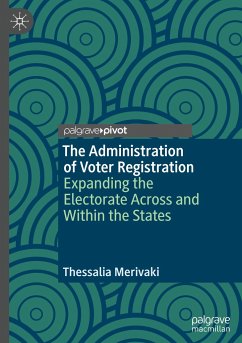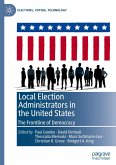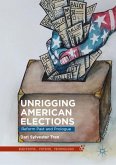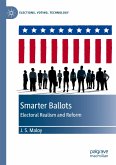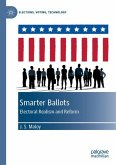This book examines the dynamics behind shifts in voter registration rates across the states and adopts a framework of collaborative governance with election administration at its center. The book starts by introducing readers to the "voter registration gap," an aggregate measure of variance in voter registration, and demonstrates how it fluctuates between federal elections. To explain why this variance exists, the author examines the relationship between federal reforms, such as the National Voter Registration Act (NVRA) and the Help America Vote Act; and state-level reforms, such as Online Voter Registration. Thessalia Merivaki argues that the weak relationship between the two is not surprising, since it hides dramatic variations in administrative practices at the local level, which take place in shorter intervals than the most frequently used two-year estimates. In closing, she shows that challenges to successfully registering to vote persist, largely because of how, when, and whereeligible citizens have to register.
Bitte wählen Sie Ihr Anliegen aus.
Rechnungen
Retourenschein anfordern
Bestellstatus
Storno

